News
-
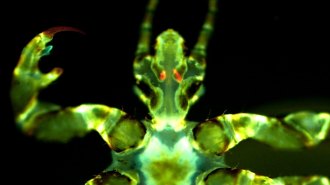 Health & Medicine
Health & MedicineHuman body lice could harbor the plague and spread it through biting
Rats and fleas previously got all the blame, but humans’ own parasites could be involved.
-
 Particle Physics
Particle PhysicsThe neutrino’s quantum fuzziness is beginning to come into focus
An experiment studying the neutrino’s “wave packet” sets a limit on the uncertainty of the subatomic particle’s position.
-
 Archaeology
ArchaeologyOne of the world’s earliest farming villages housed surprisingly few people
Hundreds, not thousands, occupied the Turkish site of Çatalhöyük nearly 9,000 years ago, undermining arguments for a Neolithic social revolution.
By Bruce Bower -
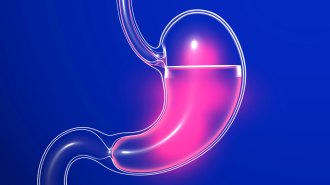 Health & Medicine
Health & MedicineBurning the stomach lining reduces the ‘hunger hormone’ and cuts weight
An experimental weight loss procedure blasts the stomach lining with heat to curb hunger and cut pounds.
By Meghan Rosen -
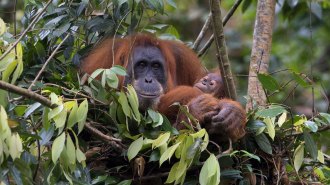 Animals
AnimalsSumatran orangutans start crafting their engineering skills as infants
By 6 months old, young orangutans are experimenting with construction materials, and by 6 years old, they are building platforms 20 meters in the air.
-
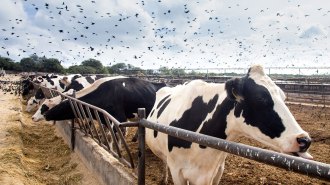 Health & Medicine
Health & MedicineGenetic analyses of the bird flu virus unveil its evolution and potential
The H5N1 outbreak in cattle is giving flashbacks to the COVID pandemic. But this time is different.
-
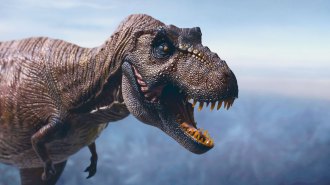 Neuroscience
NeuroscienceHow smart was T. rex?
A debate over how to count neurons in dinosaurs is raising questions about how to understand extinct animals’ behavior.
By Freda Kreier -
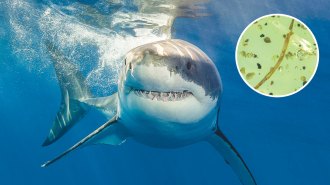 Paleontology
PaleontologyHow did an ancient shark parasite end up fossilized in tree resin?
A worm preserved in 99-million-year-old amber resembles modern flatworms in shark intestines. The rare finding has scientists stumped.
-
 Artificial Intelligence
Artificial IntelligenceShould we use AI to resurrect digital ‘ghosts’ of the dead?
Technology that creates deepfake bots of dead loved ones may need safeguards, experts warn.
-
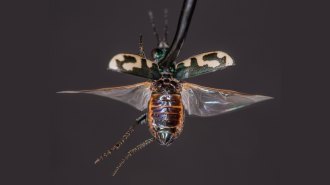 Animals
AnimalsTiger beetles may weaponize ultrasound against bats
In response to recordings of echolocating bats, tiger beetles emit noises that mimic toxic moths that bats avoid.
By Jake Buehler -
 Health & Medicine
Health & MedicineExtreme heat will put millions more older adults at risk in the future
By 2050, as many as an additional 246 million adults 69 and older could experience temperature extremes that exceed 37.5° Celsius.
-
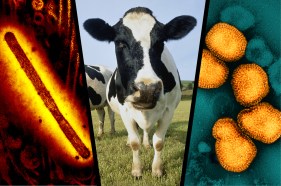 Health & Medicine
Health & MedicineCows might host both human and bird flus
Both kinds of influenza viruses may break into cattle cells using receptors similar to those in people, wild birds and poultry.